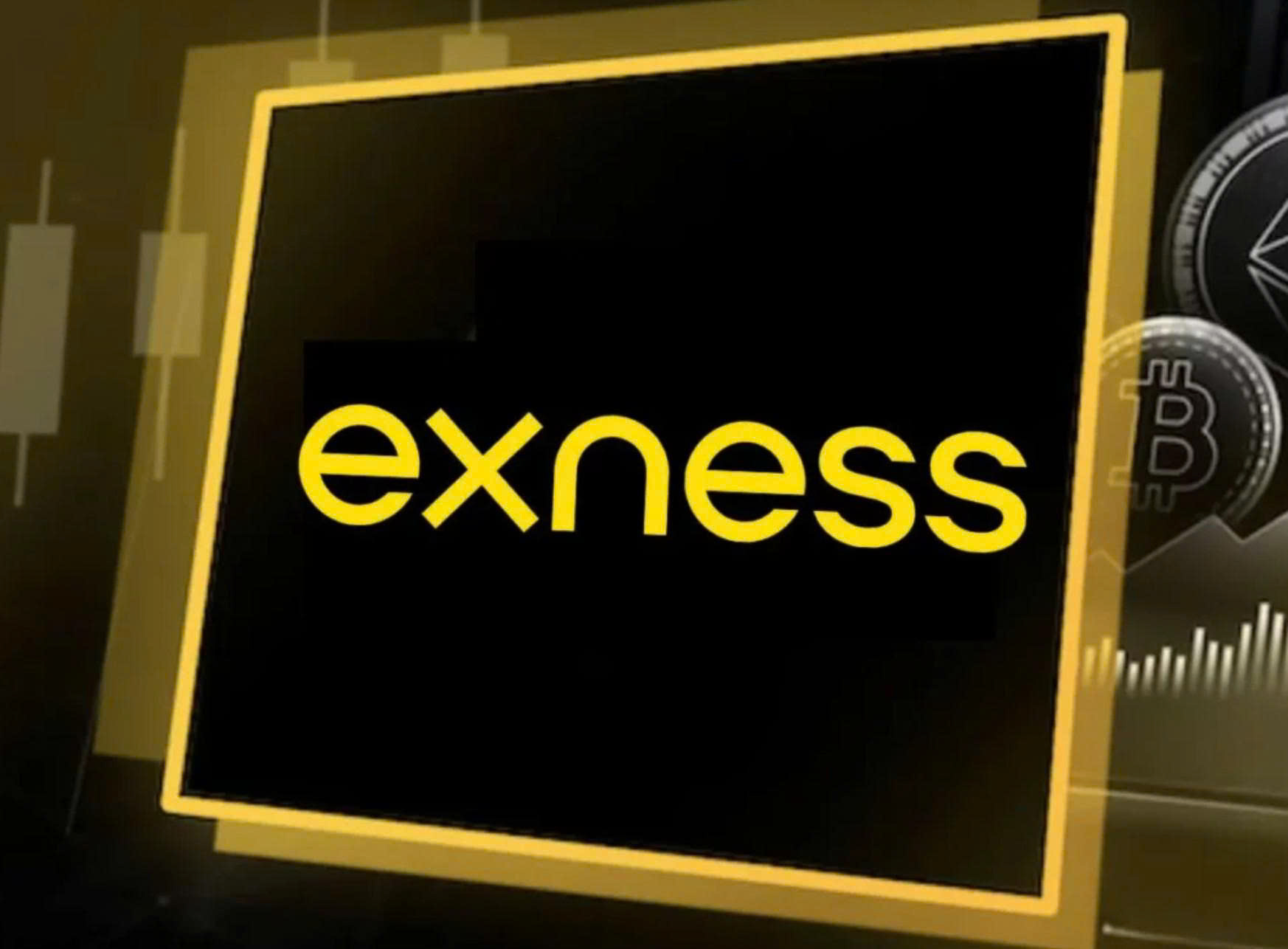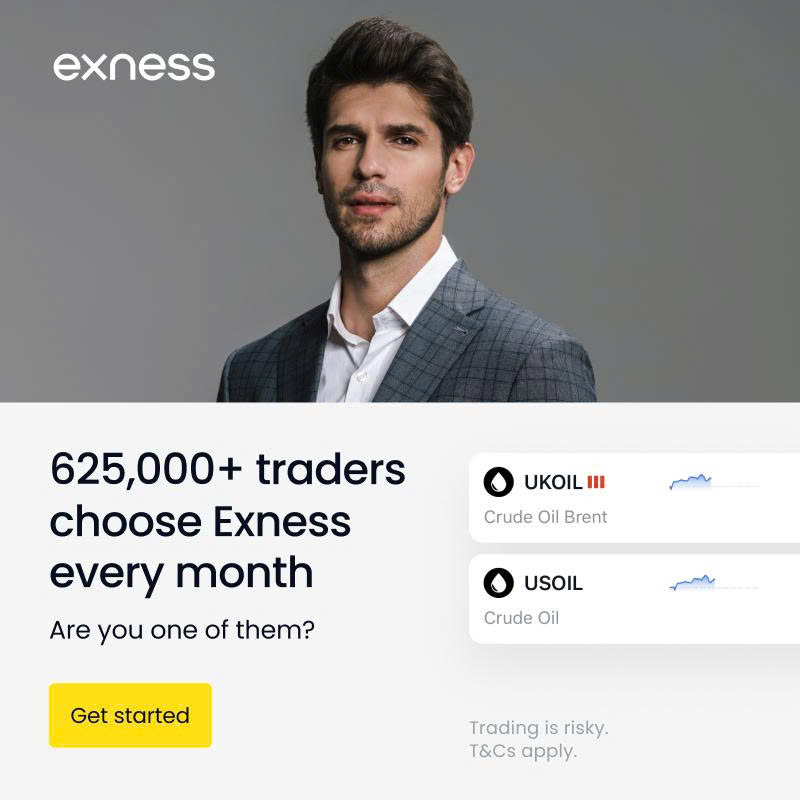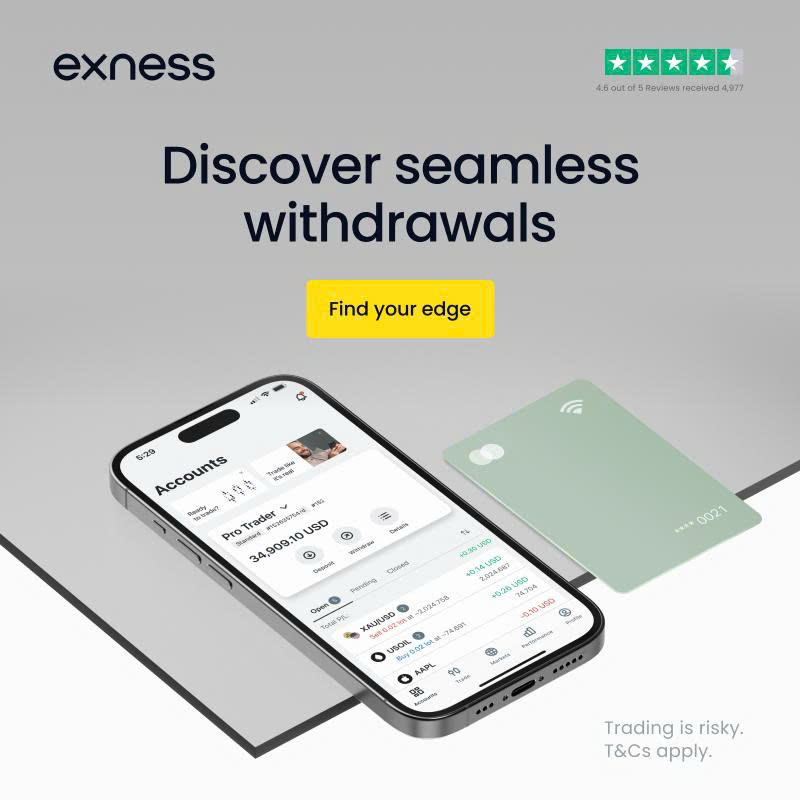
9 minute read
Is Exness Regulated in Nigeria? A Comprehensive Guide for Traders
from Exness Nigeria
Forex trading has skyrocketed in Nigeria, fueled by economic opportunities, widespread internet access, and a growing appetite for financial independence. Among the numerous brokers vying for Nigerian traders' attention, Exness stands out as a globally recognized name. However, a critical question looms for prospective users: Is Exness regulated in Nigeria? This article dives deep into Exness’s regulatory status, its operations in Nigeria, the broader forex trading landscape, and what it means for traders. Whether you're a novice or a seasoned trader, understanding the regulatory framework is essential for safe and informed trading decisions. Let’s explore.

✅ Join Exness now! Open An Account or Visit Brokers 👈
Introduction to Exness: A Global Forex Powerhouse
Founded in 2008, Exness is a leading online forex and Contracts for Difference (CFD) broker headquartered in Limassol, Cyprus. With a presence in over 180 countries and millions of active clients, Exness has built a reputation for transparency, competitive trading conditions, and cutting-edge technology. The broker offers access to a wide range of financial instruments, including forex, commodities, cryptocurrencies, indices, and stocks, through platforms like MetaTrader 4 (MT4) and MetaTrader 5 (MT5). Its low minimum deposits (starting at $10 or ₦16,000), support for Naira-based accounts, and localized payment methods have made it particularly appealing to Nigerian traders.
However, the question of regulation is paramount, especially in a market like Nigeria, where forex trading is popular but regulatory oversight is complex. To determine whether Exness is a safe and legal option for Nigerian traders, we need to examine its global regulatory credentials, Nigeria’s forex trading regulations, and how Exness aligns with local requirements.
Why Regulation Matters in Forex Trading
Forex trading is the largest financial market globally, with a daily trading volume exceeding $6 trillion. Its decentralized nature, while offering immense opportunities, also exposes traders to risks such as fraud, mismanagement of funds, and unethical broker practices. A regulated broker is accountable to a financial authority that enforces rules on fund security, trade execution, and dispute resolution. This oversight provides traders with peace of mind, knowing their investments are protected.
For Nigerian traders, choosing a regulated broker is critical due to the country’s evolving regulatory landscape. Without proper oversight, traders risk falling victim to scams or unregulated platforms that may not prioritize client interests. Let’s explore Nigeria’s regulatory environment to understand how Exness fits in.
Nigeria’s Forex Trading Regulatory Landscape
Nigeria’s financial markets are overseen by two primary institutions: the Central Bank of Nigeria (CBN) and the Securities and Exchange Commission (SEC). Their roles in regulating forex trading are distinct but interconnected:
· Central Bank of Nigeria (CBN): The CBN is responsible for monetary policy, currency stability, and managing foreign exchange transactions. While forex trading is legal in Nigeria, the CBN imposes restrictions to stabilize the Naira and prevent illicit activities like speculative trading through unregulated platforms. In 2021, the CBN introduced measures to curb unofficial forex transactions, emphasizing the use of licensed financial institutions for currency exchanges.
· Securities and Exchange Commission (SEC): The SEC regulates Nigeria’s capital markets, including securities and investment schemes. Its oversight extends to Nigerian-based brokers and investment firms but has limited jurisdiction over international brokers like Exness. The SEC ensures investor protection and transparency but does not specifically regulate forex brokers.
Nigeria lacks a dedicated regulatory body for forex trading, creating a grey area for international brokers. While forex trading is legal, and individuals can trade through licensed brokers, international platforms must comply with local laws, such as anti-money laundering (AML) and Know Your Customer (KYC) requirements, to operate legally. This regulatory ambiguity underscores the importance of choosing a broker with robust international oversight.
Exness’s Global Regulatory Credentials
Exness is regulated by multiple top-tier and mid-tier financial authorities worldwide, ensuring compliance with international standards. Its key licenses include:
· Financial Conduct Authority (FCA), United Kingdom: The FCA is a Tier-1 regulator known for its stringent oversight. Exness (UK) Ltd is licensed as an investment firm, offering robust client protections. However, Nigerian clients are not onboarded under FCA compliance.
· Cyprus Securities and Exchange Commission (CySEC): Exness (Cy) Ltd is regulated by CySEC, adhering to European Union financial standards. This includes client fund segregation, negative balance protection, and regular audits.
· Financial Services Authority (FSA), Seychelles: Nigerian traders are onboarded through Exness (SC) Ltd, regulated by the FSA. While the FSA is considered a less stringent regulator compared to the FCA or CySEC, Exness’s global reputation and transparency measures enhance its credibility.
· Financial Sector Conduct Authority (FSCA), South Africa: Exness’s FSCA license reinforces its commitment to African markets, ensuring compliance with regional financial standards.
· Other Licenses: Exness also holds licenses from the Central Bank of Curaçao and Sint Maarten (CBCS), the Financial Services Commission (FSC) in Mauritius and the British Virgin Islands, the Capital Markets Authority (CMA) in Kenya, and the Jordan Securities Commission (JSC). These licenses demonstrate Exness’s commitment to operating ethically across diverse jurisdictions.
Exness’s adherence to global regulations includes segregating client funds in Tier-1 banks, providing negative balance protection, and undergoing regular audits by reputable firms like Deloitte. These measures ensure a secure trading environment, even for clients in regions like Nigeria, where local regulation is limited.

✅ Join Exness now! Open An Account or Visit Brokers 👈
Is Exness Regulated in Nigeria?
Exness is not directly regulated by Nigerian authorities like the CBN or SEC. However, this does not mean it is banned or illegal in Nigeria. The broker operates legally as an international platform, accessible to Nigerian traders under its global licenses, particularly the FSA (Seychelles) for Nigerian clients. Exness complies with international standards, including AML and KYC requirements, which align with Nigeria’s financial guidelines.
The absence of a local license means Exness is not subject to direct oversight by the CBN or SEC. This can pose challenges, such as limited recourse in disputes, as Nigerian regulators have no jurisdiction over international brokers. However, Exness’s global regulatory framework provides a layer of security, ensuring transparency, fund protection, and ethical practices. Nigerian traders can use Exness legally, provided they declare income and pay taxes as required by Nigerian law.
Is Exness Banned in Nigeria?
No, Exness is not banned in Nigeria. The broker operates legally as an international platform, serving Nigerian traders without violating local laws. The CBN’s restrictions on forex trading primarily target unregulated platforms and unofficial currency exchanges, not reputable brokers like Exness that adhere to international standards. Exness’s compliance with global regulations and its tailored services for Nigerian traders—such as Naira-based accounts and local payment methods—make it a viable option.
Benefits of Trading with Exness in Nigeria
Exness offers several advantages that make it appealing to Nigerian traders:
· Low Minimum Deposits: Exness requires a minimum deposit of $10 (₦16,000) for standard accounts, making it accessible for beginners. Professional accounts may require higher deposits, such as $500 (₦800,000) for Social Pro accounts.
· Localized Services: Exness supports Naira-based accounts and local payment methods like bank transfers, Neteller, Perfect Money, and Stic Pay, with transaction speeds as fast as 10-30 minutes.
· Competitive Trading Conditions: Exness offers low spreads (starting at 0.0 pips for professional accounts), high leverage (up to 1:2000), and fast execution speeds, catering to both novice and experienced traders.
· Educational Resources: Exness provides free webinars, tutorials, market analysis tools, and demo accounts, helping Nigerian traders improve their skills. Support is available in local languages like English, Hausa, and Yoruba.
· Secure Trading Environment: Client funds are held in segregated accounts, and Exness’s global licenses ensure compliance with strict financial standards.
Risks and Considerations for Nigerian Traders
While Exness is a reputable broker, Nigerian traders should be aware of potential risks:
· Lack of Local Regulation: Without direct oversight from the CBN or SEC, resolving disputes may be challenging. Traders must rely on Exness’s international regulators for recourse.
· Currency Volatility: Nigeria’s economic instability and Naira fluctuations can affect trading outcomes. Traders should use risk management tools like stop-loss orders.
· Tax Obligations: Nigerian traders must declare forex trading income and pay taxes as required by law. Failure to comply can lead to legal issues.
· Learning Curve: Exness’s advanced tools, such as high leverage and professional accounts, may require experience to use effectively. Beginners should start with demo accounts.
User Experiences and Reputation in Nigeria
Nigerian traders generally report positive experiences with Exness, praising its user-friendly platforms, competitive spreads, and responsive customer support. The availability of local payment methods and educational resources has further boosted its popularity. However, some traders express concerns about the lack of local regulation, highlighting the importance of due diligence. Engaging with trading communities and forums can provide insights into Exness’s performance and reliability.
How to Verify Exness’s Legitimacy
To ensure you’re trading with a legitimate broker, follow these steps:
· Check Regulatory Licenses: Visit the websites of Exness’s regulators (e.g., FCA, CySEC, FSA) to verify its license status. Exness’s official website also lists its licenses.
· Use a Demo Account: Test Exness’s platform with a demo account to assess its features and reliability without risking real funds.
· Research User Reviews: Explore trading forums and communities to read about other Nigerian traders’ experiences with Exness.
· Contact Customer Support: Reach out to Exness’s support team (available 24/7 in multiple languages) to clarify any concerns about its services in Nigeria.
Comparing Exness with Other Brokers in Nigeria
Exness competes with other international brokers like XM, FBS, and HotForex, which also serve Nigerian traders. Here’s how Exness stands out:
· Regulation: Exness’s multiple licenses (FCA, CySEC, FSCA) provide stronger oversight compared to some brokers with only offshore licenses.
· Low Spreads and Fees: Exness offers some of the lowest spreads (starting at 0.0 pips) and no deposit or withdrawal fees, making it cost-effective.
· Localized Support: Exness’s Naira-based accounts and local payment methods give it an edge over brokers with limited regional customization.
However, brokers with local SEC registration may offer more direct recourse in disputes, which Exness lacks due to its international status.
Conclusion: Is Exness a Safe Choice for Nigerian Traders?
Exness is a reputable and globally regulated forex broker that operates legally in Nigeria, despite not being directly licensed by the CBN or SEC. Its oversight by top-tier regulators like the FCA, CySEC, and FSCA, combined with its commitment to transparency, client fund protection, and localized services, makes it a reliable choice for Nigerian traders. However, the lack of local regulation means traders must exercise caution, verify Exness’s credentials, and stay informed about Nigeria’s forex regulations.
For Nigerian traders seeking a secure, user-friendly, and cost-effective platform, Exness is a strong contender. Start with a demo account to explore its features, leverage its educational resources, and ensure compliance with local tax laws to maximize your trading experience. By choosing a regulated broker like Exness and practicing due diligence, Nigerian traders can navigate the forex market with confidence in 2025.
✅ Join Exness now! Open An Account or Visit Brokers 👈

